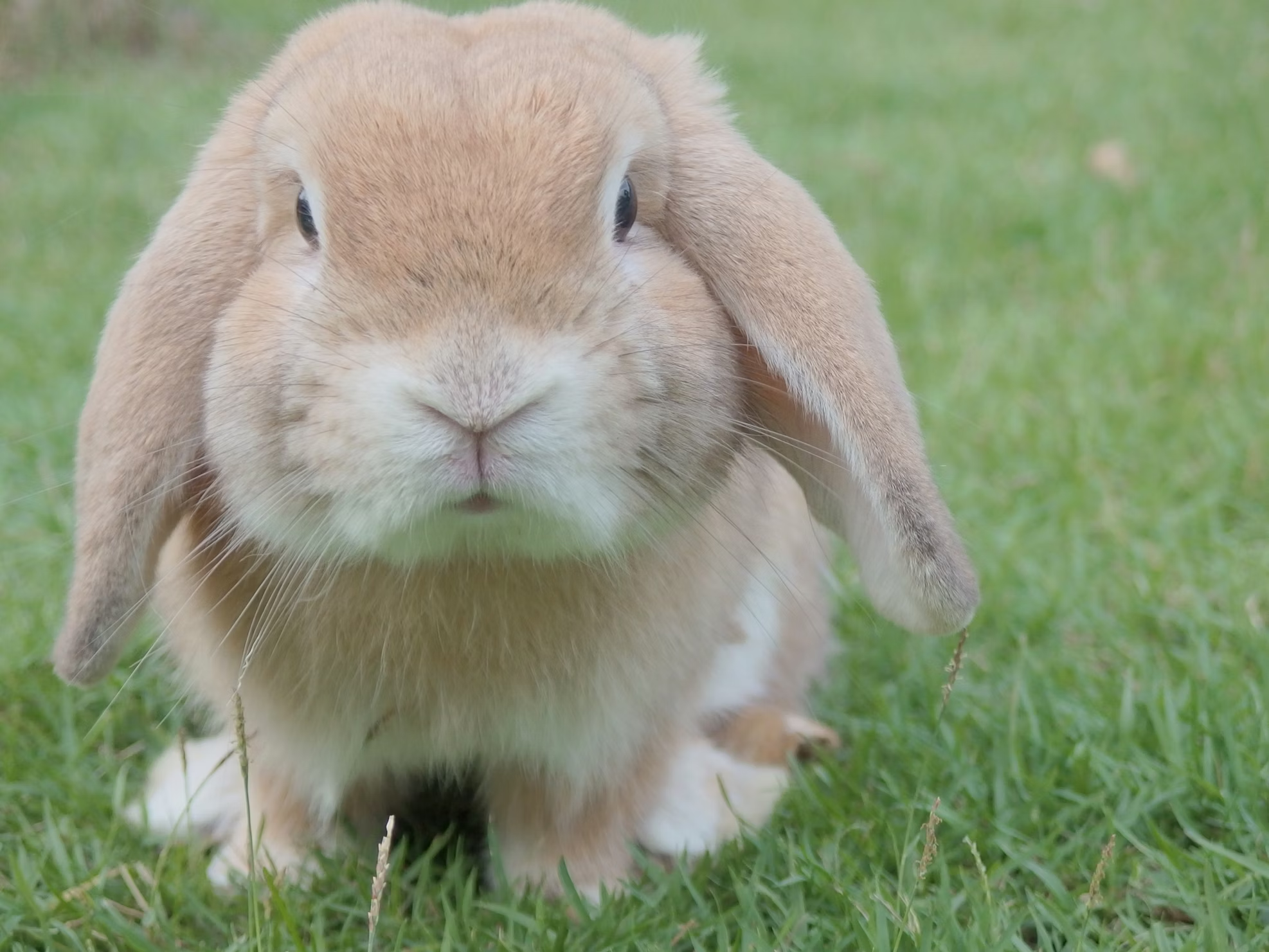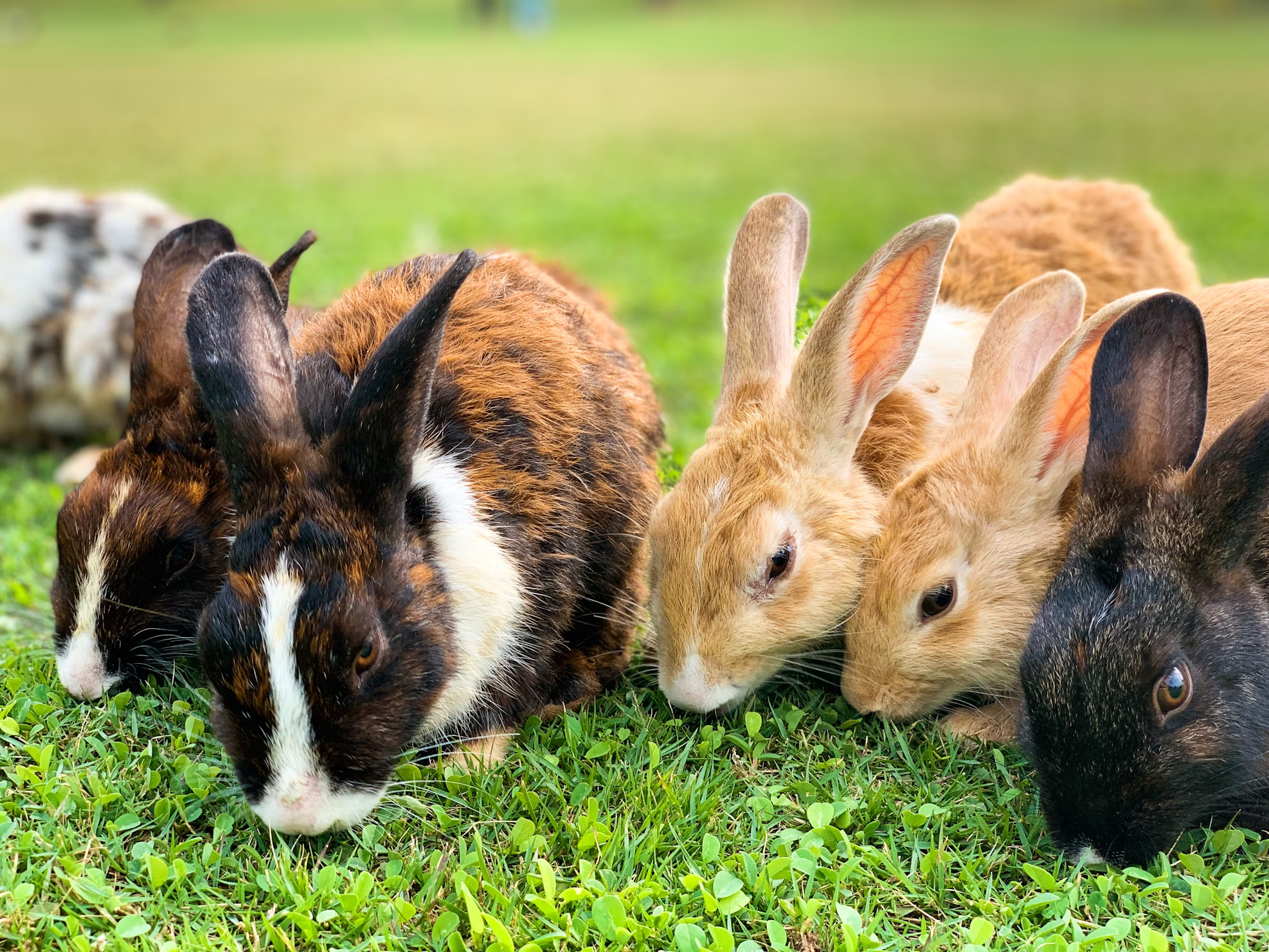
Keeping your rabbit healthy involves monitoring their weight closely, as obesity in rabbits can lead to various health issues, including heart disease, arthritis, and reduced lifespan. Here, we provide an in-depth guide on how to tell if your rabbit is getting fat and what you can do to remedy the situation.
Identifying a Fat Rabbit
1. Visual Inspection
A healthy rabbit should have a sleek, streamlined body. When a rabbit is overweight, you might notice the following:
- Prominent fat deposits around the neck (dewlap), abdomen, and legs.
- Loss of a defined waistline – Your rabbit should have a noticeable tuck-in at the waist when viewed from above.
- Difficulty grooming – An overweight rabbit might struggle to reach certain parts of its body, leading to matted fur or a dirty rear end.
2. Feel Their Body
Gently feel your rabbit’s body to assess their condition:
- Ribs and spine – You should be able to feel your rabbit’s ribs and spine with a thin layer of fat covering them. If these bones are hard to detect, your rabbit may be overweight.
- Fat pads – Check for fat pads over the hips and back. These are indicators of excess weight.
3. Behavioral Changes
Observe your rabbit’s behavior:
- Lethargy – An overweight rabbit might be less active, preferring to sit in one place for long periods.
- Reduced mobility – Struggling to hop or difficulty in climbing and jumping onto surfaces they previously could manage.
Health Risks of Obesity in Rabbits
Obesity can lead to numerous health problems in rabbits:
- Cardiovascular issues – Excess weight strains the heart.
- Arthritis – Extra weight can put pressure on joints.
- Digestive problems – Obese rabbits are at risk of developing gastrointestinal stasis, a potentially fatal condition.
- Respiratory issues – Increased body fat can make it harder for your rabbit to breathe properly.
Statistics on Rabbit Obesity
Studies indicate that a significant percentage of pet rabbits are overweight. According to the PDSA Animal Wellbeing Report, approximately 32% of rabbits in the UK are overweight or obese, underscoring the importance of weight management in pet rabbits.
Remedies for an Overweight Rabbit
1. Diet Adjustments
Proper diet is crucial:
- Hay – Ensure your rabbit has unlimited access to high-quality hay. Hay should make up the majority of their diet.
- Vegetables – Introduce leafy greens and fibrous vegetables like kale, spinach, and celery. Avoid starchy vegetables like carrots and potatoes.
- Pellets – Limit pellet intake. An adult rabbit only needs about ¼ cup of pellets per 5 pounds of body weight per day.
- Treats – Minimize sugary treats, including fruits and commercial rabbit treats. Stick to healthy options like small pieces of apple or banana given sparingly.
The items in our stores have been carefully handpicked with love and care. If you are interested in getting these products, you can check them out here. We are local sellers in Singapore! 🙂
2. Exercise
Encourage your rabbit to move more:
- Playtime – Provide a safe space where your rabbit can run, jump, and play for at least a few hours each day.
- Toys and Enrichment – Use tunnels, balls, and other toys to stimulate activity.
- Interactive games – Engage in activities like hiding food in a puzzle toy to encourage natural foraging behaviors.
3. Regular Check-ups
Regular veterinary visits are essential:
- Weight monitoring – Your vet can help you track your rabbit’s weight and provide tailored advice.
- Health assessments – Routine check-ups can catch potential health issues early, ensuring timely intervention.
Here is a list of the veterinary services provided in Singapore. Please use it if your pet rabbit requires attention!
Conclusion
Monitoring and managing your rabbit’s weight is crucial for their overall health and wellbeing. By staying vigilant and making necessary adjustments to their diet and exercise routines, you can help ensure your rabbit lives a long, healthy, and happy life.
For more detailed advice, consider consulting with a veterinarian who specializes in small animals. Regular check-ups and a tailored plan can make a significant difference in your rabbit’s quality of life.
Supporting Resources
To aid in your rabbit’s weight management journey, consider these additional resources:
- House Rabbit Society – Offers comprehensive care guides and dietary advice.
- RSPCA – Provides health and wellbeing tips for rabbits.

Werner is an avid pet lover. Despite his love for pets, the only experience he has regarding animals is Animal Crossing on the Nintendo Switch.
“Animals are cute and we should protect them.”
Share this:
- Click to share on WhatsApp (Opens in new window) WhatsApp
- Click to share on Facebook (Opens in new window) Facebook
- Click to share on LinkedIn (Opens in new window) LinkedIn
- Click to share on Pinterest (Opens in new window) Pinterest
- Click to share on Tumblr (Opens in new window) Tumblr
- Click to share on X (Opens in new window) X
- Click to share on Reddit (Opens in new window) Reddit
- Click to share on Telegram (Opens in new window) Telegram
- Click to email a link to a friend (Opens in new window) Email
- Click to print (Opens in new window) Print































